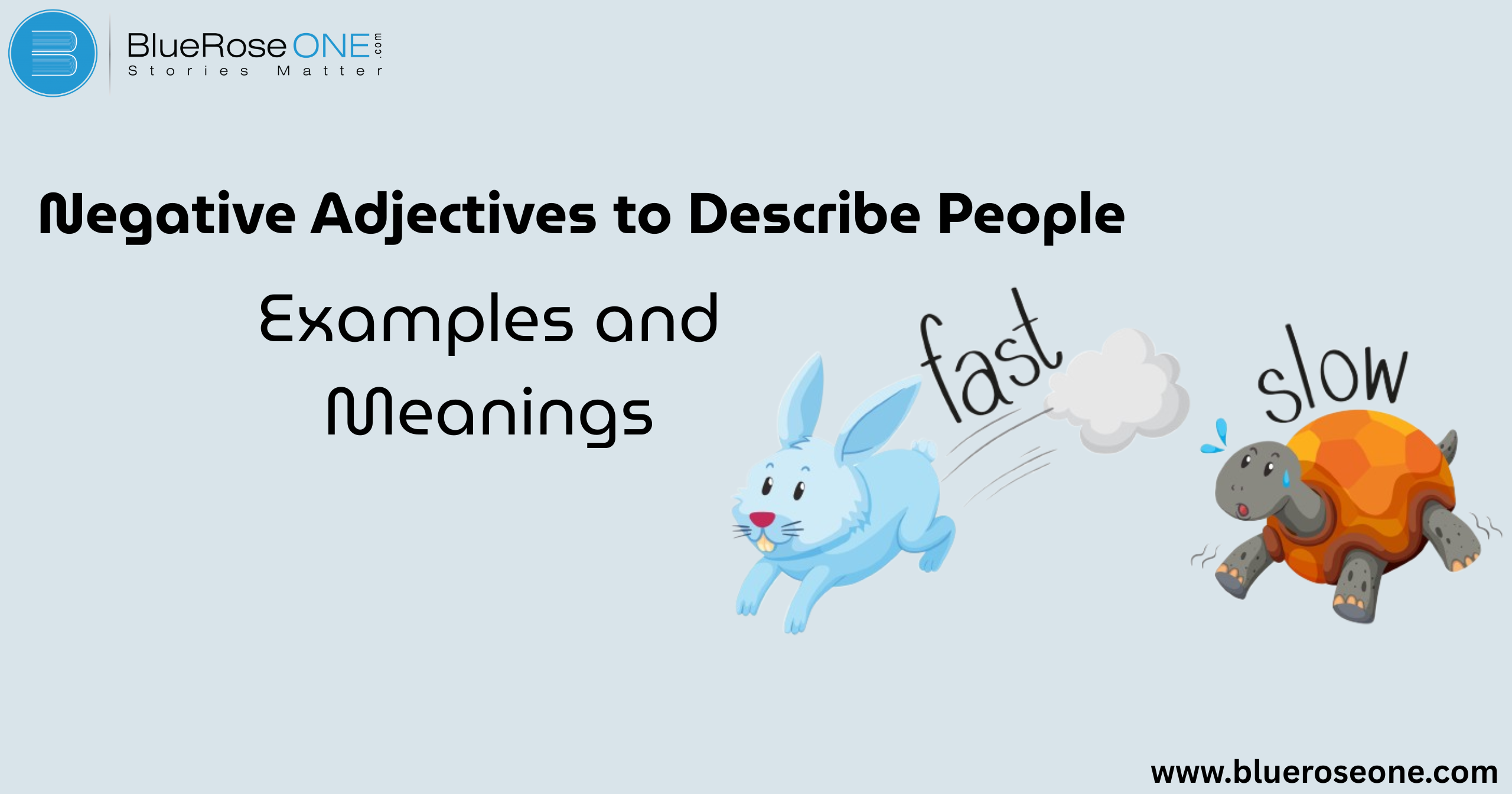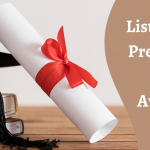Words matter, especially when they describe people. We’ve all been called something that stung maybe “lazy” or “arrogant” and we’ve probably said something similar about others too. But what exactly are negative adjectives, and why should we care about them?
Negative adjectives are words we use to describe people in less-than-flattering ways. They pinpoint flaws, weaknesses, and unpleasant characteristics. But here’s the thing—understanding these words can help us communicate better, set clear boundaries, and even understand ourselves on a deeper level.
The Power of Words
How Adjectives Shape Perception
Think about it, would you rather be described as “direct” or “rude”? The line is thin, but the impact is massive. Adjectives shape how others see us and how we see them.
Impact of Negative Language in Communication
When we label someone with a harsh word, it sticks. Whether in the office, at home, or among friends, our words carry emotional weight. Using negative adjectives irresponsibly can burn bridges before they’re even built.
You may also read: Archangels Names List: Meanings, Powers, and Symbolism
Psychological Effects of Negative Labels
Negative labels can have lasting psychological effects, particularly when used repeatedly to describe a person’s identity.
Being called terms like “lazy,” “selfish,” or “worthless” can lead to internalized self-doubt, low self-esteem, and a fixed mindset. This phenomenon, known as labeling theory in psychology, suggests that individuals may begin to act in accordance with the labels assigned to them.
Over time, such adjectives can damage motivation, hinder personal growth, and contribute to anxiety or depression.
Cultural Context and Subjectivity
The perception and use of negative adjectives are heavily impacted by cultural context and individual subjective experiences.
What is considered insulting or harsh in one culture may be perceived as direct or even acceptable in another. For example, labeling someone “stubborn” may suggest resolve in some cultures but be considered rude in others.
Personal beliefs, society standards, and regional linguistic variances all influence how negative features are labeled and interpreted, so context is essential in communication.
You may also read: 150+ Positive Words That Start with O to Brighten Your Vocabulary
When and How to Use Negative Adjectives Carefully
It’s crucial to use negative adjectives sparingly so that your point is understood without being unduly hurtful.
When truthful, helpful, or required to express a certain quality as in character descriptions, critical assessments, or candid discussions these terms ought to be employed. But context and tone are important. Steer clear of employing them in emotionally sensitive or conflict-escalating circumstances.
Instead, to foster understanding and uphold polite speech, use negative adjectives with empathy or context.
Common Negative Adjectives to Describe People
Let’s break these down into categories to make them easier to digest.
Personality-Based Adjectives
- Arrogant – Believes they’re better than others; looks down on people.
- Moody – Swings between emotions unpredictably.
- Selfish – Always puts their own needs first.
Behavior-Based Adjectives
- Rude – Lacks basic politeness; often offends unintentionally or not.
- Aggressive – Pushy, dominating, often intimidating.
- Manipulative – Uses deceit to control others for personal gain.
Intelligence-Based Adjectives
- Ignorant – Lacks knowledge, and often shows no interest in learning.
- Gullible – Easily fooled or misled.
- Dense – Struggles to understand basic concepts or social cues.
Work Ethic and Reliability
- Lazy – Avoids effort or responsibility.
- Irresponsible – Doesn’t take ownership of tasks or consequences.
- Unreliable – Can’t be counted on when needed.
You may also like: 100+ Powerful Descriptive Adjectives to Make Your Writing Vivid
Replacing Harshness With Constructive Language
Instead of:
- “You’re lazy” → Try “I noticed you’ve been less active lately. Is everything okay?”
- “You’re aggressive” → Try “I feel overwhelmed when our conversations get intense.”
Reframing helps maintain respect while addressing the issue.
Why You Should Expand Your Negative Adjective Vocabulary
Knowing more precise words lets you communicate better. Instead of calling someone “mean,” maybe they’re “sarcastic,” “condescending,” or “insensitive.” See the difference?
Being specific shows emotional intelligence and that’s attractive in any relationship.
You may also read: 400 Adjectives That Start with L to Level Up Your Vocabulary
Table of 50+ Negative Adjectives With Meanings
| Adjective | Meaning |
|---|---|
| Arrogant | Overconfident and dismissive of others |
| Cynical | Always expects the worst |
| Impatient | Easily irritated by delays |
| Hostile | Openly aggressive or unfriendly |
| Deceitful | Frequently lies or misleads |
| Moody | Emotionally unstable |
| Jealous | Envious of others’ success or happiness |
| Overbearing | Dominates and controls others |
| Callous | Lacks empathy or concern |
| Grumpy | Frequently irritable or bad-tempered |
| Vain | Obsessed with appearance or self-image |
| Inflexible | Unwilling to change or adapt |
| Judgmental | Quickly forms negative opinions of others |
| Petty | Concerned with trivial matters |
| Clingy | Overly dependent or emotionally needy |
| Manipulative | Controls others through deceit |
| Boastful | Brags excessively |
| Obnoxious | Annoyingly loud or intrusive |
| Passive | Avoids confrontation, overly submissive |
| Cold | Emotionally distant |
| Irresponsible | Doesn’t take accountability |
| Insensitive | Unaware of others’ feelings |
| Sarcastic | Uses cutting or ironic remarks |
| Stubborn | Refuses to compromise or listen |
| Unpredictable | Behavior changes often and without reason |
Real-Life Situations Where These Adjectives Are Used
- Workplace Conflicts: Calling a co-worker “lazy” can damage collaboration.
- Toxic Relationships: Words like “manipulative” or “jealous” define unhealthy dynamics.
- Academic Settings: A student labeled “dense” might stop trying altogether.
How to Handle Negatively Described People
- Set boundaries.
- Communicate clearly.
- Don’t engage in name-calling.
- Focus on behavior, not identity.
Conclusion
Negative adjectives are more than just words. They’re reflections of behaviors, attitudes, and patterns we encounter and sometimes exhibit. Use them wisely, understand them deeply, and always aim for respectful, clear communication.
Frequently Asked Questions
Not always. Some can highlight important red flags or be used to set boundaries respectfully.
Yes, when used constructively, they can point out behaviors that need improvement.
Focus on the behavior, use soft language, and always offer support or solutions.
Absolutely. What’s seen as “rude” in one culture might be normal in another.
Choose specific, non-hurtful words and speak with empathy and clarity.

















[…] You may also read: Negative Adjectives to Describe People: Examples and Meanings […]
[…] You may also read: Negative Adjectives to Describe People: Examples and Meanings […]
[…] You may also like: Negative Adjectives to Describe People: Examples and Meanings […]
[…] You may also: Negative Adjectives to Describe People: Examples and Meanings […]
[…] You may also like: Negative Adjectives to Describe People: Examples and Meanings […]